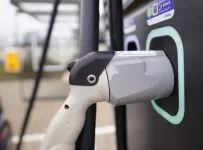Over 32 International Electronics Companies Apply for India’s Incentive Program to Boost Local Electronics Manufacturing

In a significant development, more than 32 international electronics companies have formally submitted applications for India’s incentive program, designed to bolster the domestic production of laptops, tablets, and servers. This move comes shortly after the Indian government unveiled restrictions on the import of laptops, marking a clear push towards enhancing domestic manufacturing capabilities.
Under the leadership of Prime Minister Narendra Modi, the Indian government is actively promoting the “Make in India” initiative, which seeks to boost the country’s indigenous manufacturing capacities. Many global corporations are either establishing their own production units or forming strategic partnerships with Indian companies to align with this initiative.
The surge in applications from electronics companies is in response to India’s $2 billion (approximately Rs. 16,500 crore) production-linked incentive (PLI) program, specifically focused on incentivizing the production of information technology hardware. The announcement was made in May, and the program falls under the jurisdiction of Information Technology Minister Ashwini Vaishnaw.
This recent development coincides with the Indian government’s move to introduce licensing requirements for the import of laptops, tablets, and personal computers. This decision is widely seen as an effort to stimulate local manufacturing and reduce dependency on imports.
Prominent global players such as Hewlett Packard Enterprise, Dell Technologies, Asus, Acer, and Lenovo have applied to be part of this significant initiative aimed at local production of laptops and associated products. Minister Vaishnaw confirmed these applications through a video feed from ANI news agency, in which Reuters holds a minority stake.
The PLI program for IT hardware is projected to attract an additional investment of Rs. 24.3 billion and is anticipated to generate approximately 75,000 direct employment opportunities, according to the minister’s statements.
In light of the new licensing requirements for laptop, tablet, and personal computer imports, India’s trade regulator has introduced a transitional period of approximately three months before the new licensing framework takes effect. This adjustment is seen as a response to concerns raised following the initial decision to implement the licensing requirement immediately.
The government issued a notification stating, “Import consignments can be cleared till October 31 without a license, and a government permit would be required for clearance of import from November 1.”
As India takes decisive steps to strengthen its local manufacturing landscape, the electronics industry is set to witness transformative changes in the near future.


